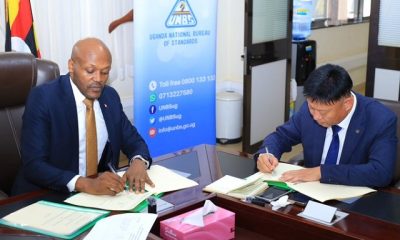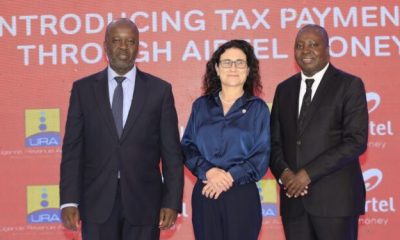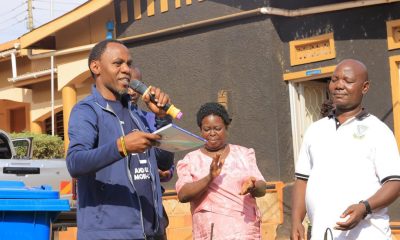Business
Gov’t in ambitious new push for HASS avocado cultivation
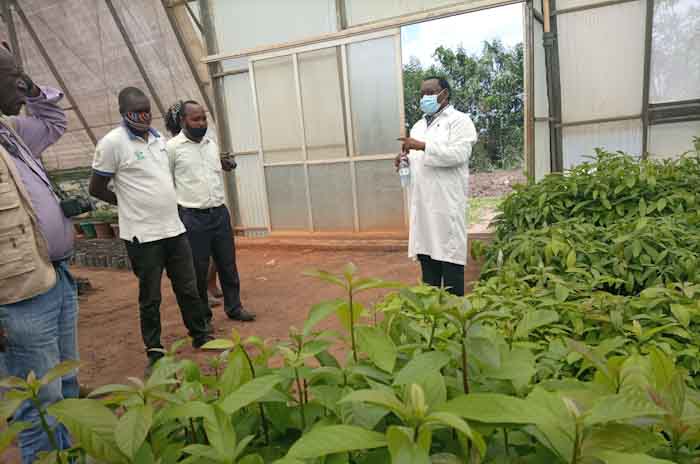
Prof. Gwali explaining to visitors their plans to raise one million avocado plants
The government of Uganda has embarked on an ambitious plan to promote the cultivation of the popular HASS avocado variety by Ugandans, mainly targeting the export market.
The objective, according to NARO researchers who’ve been given ambitious targets to produce quality seedlings, is to boost export of avocado fruits, but also to encourage the development of avocado-based industries, including the production of avocado oil for cosmetics, pharmaceutical products from avocado seed, through value-addition or industrialisation.
Motivated by rapidly growing demand for avocado oil internationally, but also by Kenya’s runaway success in production of the fruits on the one hand, and Uganda’s unmatched advantage in producing the fruit, the government identified avocado, along with apple bananas, (Sukaali Ndiizi in Luganda) and Pine Apples as priority crops to be promoted for the export-market.
The National Forestry Resources Research Institute (NaFORRI) and the Mukono Zonal Agricultural Research Institute (MUZARDI) have been given the task to produce true-to-type or pure HASS seedlings to be made available to farmers across the country, at a subsidized cost.
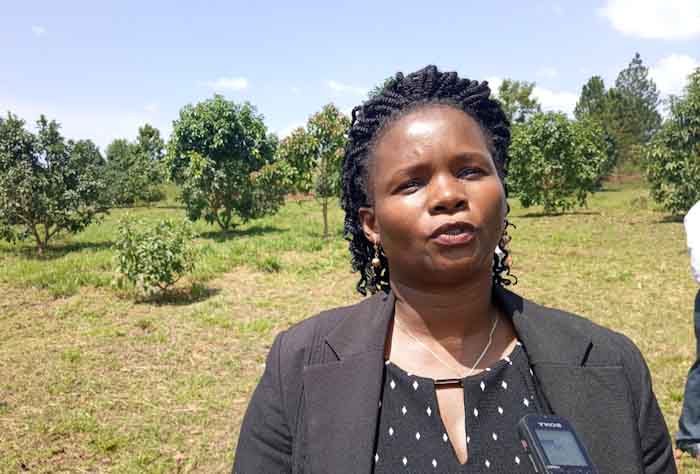
Dr. Zawedde speaks from the recently established Avocado gene bank about the program to promote the crop
Dr. Barbara Zawedde, the Director of MUZARDI says: “When you look at the global market, there is increasing demand for avocado oil, whose quality is comparable to that of olive oil and therefore highly sought after.”
Zawedde notes that the current market value of avocado oil is estimated at US$86.7m but, that it is expected to more than triple in five years.
She says: “We believe that as a country, we have comparative advantage due to better soils, favourable climate to do even better than Kenya, which is Africa’s leading producer of HASS avocado.”
In 2020, Kenya earned a staggering (US$127million) from exports of avocado, which is dominated by HASS, up from US$90m the previous year. The revenue was out of the export of 68,000 metric tones of the fruit.
Although Uganda earns more from coffee, our biggest commodity export (US$494m from a total volume of 300,000 tones or 5million bags), Kenya earns more from each tone of avocado compared to Uganda. Kenya earns, US$1,867 per tone of avocado, compared to Uganda’s US$1,647 per tone of processed coffee.
Paradoxically, Uganda adopted HASS avocado farming earlier than Kenya, back in the 1990 but abandoned the project.
According to Dr. Zawedde, the Kenyan government working with exporters, has developed farmers clusters where even smallholder farmers with as few as ten trees, are anised around a cooperative that helps them to pool their produce to attract big exporters.
Intensify access to quality seed
This time, however, according to Dr. Zawedde, the government is determined to push this commodity as one of the export items, targeting especially the middle east countries.
Owen Singura, the HASS Avocado focal point person at MUZARDI, told The Sunrise that government has given NARO, a target of producing 600,000 HASS seedlings this financial year alone.
He expressed optimism that they will be able to meet the challenge and make available the seedlings at a subsidized rate of UGX5000 each.
“We have started receiving orders from farmers across the country,” he said.
At NaFORRI in Mukono, the government is also expanding facilities that will enable the production of one million seedlings per year over the next five years. The government is also establishing a ten-acre mother garden from which scions will be obtained to graft pure HASS avocado plantlets.
For now, the researchers are importing scions from Kenya, perhaps explaining the high cost of the seedlings.
Private sector leading the way
And according to Dr. Zawedde, some private investors have already established big farms of HASS.
One company known as Musibi Farm, located in Mayuge has established so far the largest avocado farm in Uganda measuring more than down a Sugarcane field to convert it into an avocado orchard.
There are also yet-to-be confirmed reports that Speaker of Parliament Rebecca Kadaga is pondering an investment on the scale of Musubi in Busoga region.
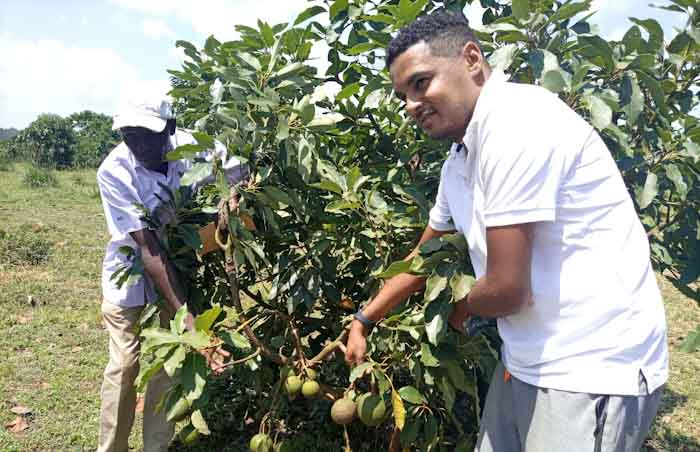
HASS avocado does very well in Uganda and is a highly yielding and sought after variety, internationally.
Other major HASS projects are located in Bundibugyo region, previously known as the most suitable avocado-growing region of Uganda.
But Zawedde observes that they have learnt the bitter lessons learned from similar programmes such as Moringa, Aloevera where farmers massively ventured into the business only to lose a market because they primarily targeted the export market.
This time round, Dr. Zawedde says, the government is promoting value-addition at the farmer level, primarily avocado oil extraction, to ensure that even when the export market in unable to absorb any excess production, farmers can still make use of their produce.
What we have observed with other cops like Vanilla, Moringa and Aloevera, is that they are susceptible to price fluctuations. For us as government we want to emphasize value addition. We want to support farmers to establish cottage industries and be able to extra oil, which is what is highly demanded now.”
Zawedde says they are also promoting the concept of stakeholder engagement platforms where they bring different players in the avocado value chain such as farmers, exporters, cosmetics makers to dialogue and create a self-sustaining industry.
NARO researchers add that they are collecting more avocado varieties from across the country to try to identify other varieties that may do even better than HASS in terms of yield and oil content.
Owen Singura says some farmers such as former Vice President Prof. Gilbert Bukenya, have offered varieties with very good quality to be multiplied, researched on and also conserved for future development of the crop. He asked other Ugandans with plants they think are very testy or very rich in oil, to contact MUZARDI so that their teams can obtain the genetic material for multiplication and conservation purposes.
Comments














